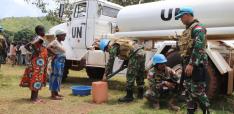Book Review – The Crisis of Citizenship in the Arab World

The Crisis of Citizenship in the Arab World edited by Roel Meijer and Nils Butenschøn. Leiden: Brill, 2017. 544 pp., €149 hardcover 9789004340565, €138 e-book 9789004340985
Given the surprising nature of the revolts across the Arab World in 2011 to most political observers, it should not surprise that they also led to much critical thinking about the analytical approaches used to understand Arab Politics. Had not much scholarship in the years leading up to the uprisings concentrated on how authoritarian regimes were able to persist amid global democratization? Had that research agenda not been a swing of the pendulum back from a previous “democrazy” perspective that interpreted even the smallest reforms as steps toward liberal democracy in the MENA region? Such questions, Valbjørn notes in a chapter of the volume reviewed here, have led to new approaches, but also the rediscovery and revitalisation of existing ones. In this edited volume, Roel Meijer and Nils Butenschøn propose that citizenship, “the relationship between citizens and the state in its different aspects and dimensions” (p. 3), provides a promising analytical entry to understanding a region in crisis. This is not least the case as it is here that they identify the clearest expression of “the deep political, economic, and cultural crisis in the MENA region” (ibid). They therefore revive an approach that Butenschøn had first elaborated in detail with his co-editors Uri Davis and Manuel Hassassian in the volume Citizenship and the State in the Middle East in 2000.
 The current 2017 book, The Crisis of Citizenship in the Arab World is divided into three sections – The Arab Social Pact, Concepts of Citizenship, and Practices of Citizenship – and includes chapters on a number of case studies from across the region’s countries representing a variety of regime and other social constellations (e.g. the largely homogenous republic of Tunisia, wealthy Gulf monarchies and heterogenous republican Syria). This way, both the conceptual approach of citizenship studies as well as the region’s dynamics themselves are under scrutiny from different angles. On the former, this shows the vast potential of the approach, but in parts also the risk inherent in its width. As the different authors take different analytical cues from the same conceptual base of citizenship, the volume is clearly not aimed at a set of comparative case studies. In (small) parts, the citizenship theme comes across as more a change of terminology than a fundamental theoretical rethink. On the latter, the editors’ assessment of a region in crisis, with perhaps only Tunisia standing out as a country developing democratic citizenship, is confirmed across the board, even in the wealthy and mostly stable Gulf states. The reader will find it useful that the volume retraces the developments that lead to the current crisis all the way back to colonialism. A chapter on ‘The British Legacy in the Middle East’ is included. It is unfortunate that this is not complemented by one on the French legacy, the other important colonial power of the region.
The current 2017 book, The Crisis of Citizenship in the Arab World is divided into three sections – The Arab Social Pact, Concepts of Citizenship, and Practices of Citizenship – and includes chapters on a number of case studies from across the region’s countries representing a variety of regime and other social constellations (e.g. the largely homogenous republic of Tunisia, wealthy Gulf monarchies and heterogenous republican Syria). This way, both the conceptual approach of citizenship studies as well as the region’s dynamics themselves are under scrutiny from different angles. On the former, this shows the vast potential of the approach, but in parts also the risk inherent in its width. As the different authors take different analytical cues from the same conceptual base of citizenship, the volume is clearly not aimed at a set of comparative case studies. In (small) parts, the citizenship theme comes across as more a change of terminology than a fundamental theoretical rethink. On the latter, the editors’ assessment of a region in crisis, with perhaps only Tunisia standing out as a country developing democratic citizenship, is confirmed across the board, even in the wealthy and mostly stable Gulf states. The reader will find it useful that the volume retraces the developments that lead to the current crisis all the way back to colonialism. A chapter on ‘The British Legacy in the Middle East’ is included. It is unfortunate that this is not complemented by one on the French legacy, the other important colonial power of the region.
The general tenor of the analysis for the Arab republics is that the post-independence pact between rulers and ruled, whereby citizens would forego political participation for the enjoyment of social and economic benefits started to crumble when neoliberal reforms made it impossible for the regime to maintain its part of the bargain. In the vocabulary of T.H. Marshall’s famous analysis of citizenship in Britain that some authors in the volume employ, Arab citizens’ social rights had preceded civil and political rights. Once the first could no longer be provided on the same scale, they turned into the regimes’ social favours to selected individuals and groups, generating a sense of injustice that triggered the 2011 uprisings. Thanks to their oil wealth, the Gulf monarchies can still largely fulfil a similar bargain, but are faced with their own unique challenges, not least that the vast majority of these countries’ populations are migrants without any prospect of becoming naturalised. Inevitably, some readers will doubt that the rights-based approach intrinsic to the Marshallian conception of citizenship makes sense in a region whose regimes fail on an extraordinary scale to guarantee their citizens’ rights.
If regime practices of and toward citizenship in the MENA region still fall well short of most analysts’ conception of democratic citizenship, it is notable that the chapters on political thought detect a growing influence of liberal conceptions of citizenship in the boundaries of territorial states, including in the Muslim Brotherhood’s thinking. A clear mark has also been left by the performative idea of citizenship as an act, which gives those excluded from the status of citizenship the opportunity to claim it through certain actions. This is perceptible both in the political thinkers under analysis in the respective chapters and the fact that the whole third part of the volume is devoted to this conception as an analytical approach to practices of citizenship.
The book would have benefitted in places from more thorough proofreading. However, this volume on citizenship in the MENA region will be greatly rewarding for those interested in the political and social dynamics in the region as well as those with an interest in citizenship studies more broadly. Along with its forthcoming sequel The Middle East in Transition: The Centrality of Citizenship, it is likely to be a key contribution to the literature on citizenship broadly and especially concerning the MENA region.
Fabian Stroetges is a PhD candidate at the School of Government and International Affairs, Durham University. His doctoral research focuses on Tunisia's political transition following the Arab uprisings.
Image credit: Hugh Lunnon via Flickr (CC BY-SA 2.0)


